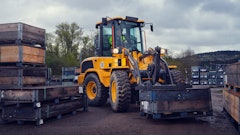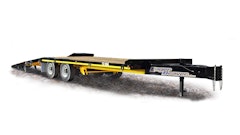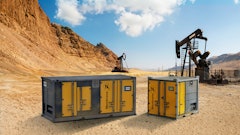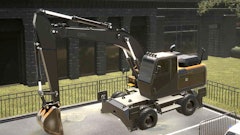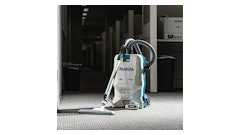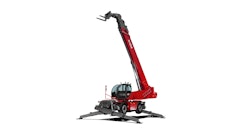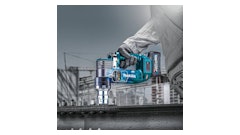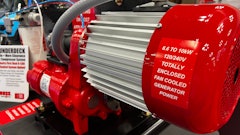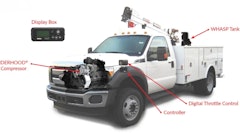
Many rental companies, dealers and contractors are taking advantage of like-kind-exchange (LKE) transactions to defer taxable gains on qualifed sales of used equipment, and if you meet the LKE requirements there is little reason not to use the concept if you have current taxable income to offset, or are likely to have taxable income in the near future.
While LKE might sound like an easy thing to do, it can get very complicated, with staying in compliance a real challenge. There is, however, flexibility in the process, giving taxpayers the ability to choose to use LKE or decide to have the taxable gain reflected in their taxable income.
The way LKE works, an equipment owner can sell a business asset at a gain and defer the gain (calculated using tax depreciation) to some future date as long as they use the sales proceeds to purchase a qualified replacement unit. The amount of the gain deferred has to reduce the tax basis in the new replacement property and as a result, the deprecation deduction going forward is now lower then it would have been had LKE not been used. For example:
- Machine sold for $50,000 with zero tax basis (fully depreciated).
- New machine purchased for $200,000.
- With LKE, the $50,000 gain is deferred, you have a $20,000 LKE benefit and the tax basis in the new unit is $150,000.
Depreciation going forward without LKE is $40,000 the first year versus $30,000 if you use LKE; a simple example but you get the idea.
Another LKE requirement is that the sales proceeds be restricted until they are used to purchase the new unit or pay down equipment-related debt. In addition, these funds should be held by a "qualified intermediary" until the funds are used to repurchase replacement property, pay down equipment related debt or are removed from the account as a taxable distribution. As you can see, this subject can get complicated and with more and more equipment owners using LKE to manage their tax position and cash flow, it is imperative to be certain of your tax positions.
Every once in a while, however, some people go off the reservation and push the envelope and create a potential problem for the rest of the tribe. We are starting to see something along those lines now that you need to be aware of to help avoid having your LKE transactions reversed.
What we are starting to see are pass-through transactions where machines are provided to a dealer who sends them to auction, receives the sales proceeds to offset the cost of the new unit with the customer believing this transaction is a LKE. In addition, dealers are taking this same transaction and treating the used unit provided to the dealer as a "trade-in" thus charging a lower sales tax (where applicable). In our example they are charging sales tax on the $150,000 and not the $200,000.
So the question becomes:
- Is this pass-through transaction as described a LKE?
- Can the auction sales proceeds be treated as a trade-in for sales tax purposes?
The answer is MAYBE to the first question and PROBABLY on the second depending on how the transactions is structured and documented.
Reviewing this transaction you find no third party intermediary is used to hold the restricted funds. In addition, the "sold" unit was actually sold and proceeds collected, thus potentially negating the trade-in for tax purposes.
One way this transaction can be a LKE is by doing a simultaneous transaction of transferring the original unit and taking possession of a replacement unit the same day. If you do this, LKE is available without the use of the third party intermediary.
Sales tax law differs from state to state and it is safe to say that it would be smart to get some expert advice before trying to make this type of transaction a trade-in transaction, and to understand who winds up the tax liability should there be one.
To back up my feelings about this type of transaction I asked two of the leading LKE service providers if they believe the transaction as described above would provide LKE benefit other than as a simultaneous transaction (same day). Guess what, two different answers.
Jeff Nelson of PWC comments, "The transaction described is fairly common in the industry and customers and dealers should be able to structure these types of contingent/consignment value contracts in compliance with the rules of IRC Sec 1031 even without the services of a Qualifed Intermediary. However, Like Kind Exchange is extremely dependent on the proper form of the transaction. There are no short cuts and customers/dealers must be careful to respect that form when structuring their trade-ins..."
Jim Burnett of Accruit LLC stated that "pass-throughs without a Qualifed Intermediary involved may fall ourside of the safe harbor guidelines as established in IRC 1031. The fact that there is typically a delay between the time the original asset is transferred to a dealer, and the date replacement property is acquired raises questions. Like Kind Exchanges are not optional. Guidance suggests that 1031 exchanges are form over substance, meaning that if it looks like an exchange, the taxpayer must follow a specific process, including execution of an exchange agreement, notification of assignment in writing, inclusion of a Qualified Intermediary (to avoid constructive receipt), and completion of Form 8824 as part of the taxpayer's tax filing. Additionally, given the tremendous benefit and low cost of single exchanges, even the smallest equipment transaction can be run as a safe harbor LKE."
See the diagrams in this article which highlight the pass-through and safe-harbor Like Kind Exhange transactions. As you can see, LKE's are complicated and even the experts have a hard time agreeing on certain issues.
Jeff Nelson can be reached at ph. (612) 889-5973 or [email protected]. Accruit, by the way, has a document that discusses this issue in more detail. Please contact Accruit at ph. (720) 963-5000 to receive your copy.
LKE's can provide a significant benefit for rental companies, dealers and contractors if used properly. Please make an effort to understand the basic LKE qualification concepts and be wary of any transaction where a qualified intermediary is not part of the process. The sales tax issues should also be reviewed with your tax advisor.
Editor's Note: This article is not intended to be tax advice. Readers should contact their tax accountants for professional tax service.
Garry Bartecki is director of dealer/distributor services at BDO Seidman LLP of Chicago, as well as consultant to Associated Equipment Distributors (AED). He has also worked as an independent CPA and consultant to equipment dealers. He can be reached by phone at (312) 616-4677 or email at [email protected].





